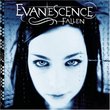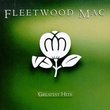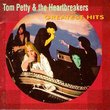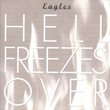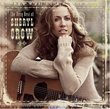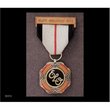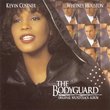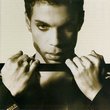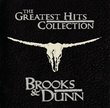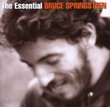| All Artists: Wings, Paul McCartney Title: Band on the Run Members Wishing: 14 Total Copies: 0 Label: Capitol Original Release Date: 1/1/1974 Re-Release Date: 3/9/1999 Album Type: Limited Edition, Original recording reissued, Original recording remastered Genres: Pop, Rock, Classic Rock Styles: Soft Rock, Oldies, Vocal Pop, Album-Oriented Rock (AOR) Number of Discs: 2 SwapaCD Credits: 2 UPC: 724349917620 |
Search - Wings, Paul McCartney :: Band on the Run
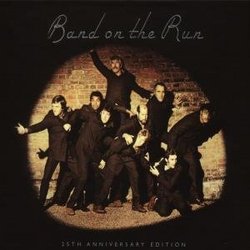 | Wings, Paul McCartney Band on the Run Genres: Pop, Rock, Classic Rock
Band on the Run should have been a disaster. Two of Wings' original members quit in a huff just before its production. The whimsical decision to record in Lagos, Nigeria, became a nightmare when McCartney and company found... more » |
Larger Image |
CD DetailsSynopsis
Amazon.com essential recording Band on the Run should have been a disaster. Two of Wings' original members quit in a huff just before its production. The whimsical decision to record in Lagos, Nigeria, became a nightmare when McCartney and company found themselves in a decaying studio, then had many of the project's demos stolen by armed bandits. Despite these hardships--perhaps because of them--Band on the Run remains the most focused and consistently satisfying record of McCartney's wildly uneven post-Beatles career. This mini box set contains the original album, a well-written booklet by Mark Lewisohn, and a bonus disc featuring outtake snippets and interviews with all the album's participants (including its cover crew, which includes actors James Coburn and Christopher Lee) and Dustin Hoffman, who recounts how he spurred McCartney to spontaneously write "Picasso's Last Words" on a dare. This second disc would make a fine radio show; it comes up short where it matters most--in music. Time spent detailing the album-cover photo session could have been more gratifyingly devoted to more contemporary outtakes (much of the bonus Band material is culled from live performances from as recently as the mid '90s; perhaps McCartney wants us to know how important the record has been to him over the years) or to a pair of single B-sides, which are curiously absent here. --Jerry McCulley Similarly Requested CDs
|
CD ReviewsNo Words for My Love Tom Emanuel | Deadwood, SD USA | 01/21/2005 (5 out of 5 stars) "Many fans and critics alike will tell you that Paul McCartney's 1973 Band on the Run and 1975 Venus & Mars are his best albums and near-equals. While I like Venus & Mars fine, I think this faulty comparison is due to one of two things: A) overestimation of V&M or B) underestimation of BotR. And strange as it may seem, the latter is much closer to reality. Band on the Run is terribly underrated the same way Abbey Road is underrated - respected, but not held in the awe reserved for "better" records like Sgt. Pepper's or Plastic Ono Band. Yeah. Right. Ranking at a paltry #418 on Rolling Stone's "500 Greatest Albums" list, it's about time Band on the Run stands up and is accorded its rightful place as one of pop's greatest achievements. The album opens with a one-two punch of the title track, a grandiose mini-suite chronicling a bereaved prisoner and his jubilant escape (construe that how you choose), and the thrilling Jet, flying as high as its namesake. Amazingly, Paul manages to keep a comparable level of excellence up throughout the album. If you've heard these two tracks you'll know how unlikely that seems, but it's true: this is the most consistently awesome album the man has produced since the Beatles' breakup. What made the Fabs' best so great - the intricate-yet-accessible melodies, the imagistic poetry, the superb musicianship, the soaring harmonies, the thumping bass, the multi-tracked vocals and guitars, the glorious strings and brass - is all here. Stylistically Paul creates an effervescent fusion of melodic pop, exhilarating rock & roll, and elaborate symphonic elements with touches of blues, jazz, music-hall, and folk expertly mixed in for colour. For instance, Bluebird is laid-back and jazzy; Let Me Roll both send-up and tribute to John Lennon's distinctive post-Beatles style. As for subject material, freedom is the word. Right from the get-go Band on the Run is rife with the themes of liberation and release - the opening one-two punch sets it up and from there it's all-out. This idea, this concept ties the album together, transforming it from merely a collection of brilliant songs into a monumental whole. Each and every song carries the thread, whether it be a literal prison break, the liberty of the open road, or even Death, the ultimate escape. Reprisals of themes, lyrics, and passages all act to unite Band on the Run until, at the very last, the roaring climax of the finale, we come full circle: "Band on the Run! Band on the Run..." On Band on the Run not only are you able to experience the songwriting genius of Paul McCartney at its finest, but you get an album that is more than an album. From the very first note it sucks you in and doesn't let you out again until the last ringing chords of the reprised title track have evaporated completely, forty-five minutes later. And what a glorious forty-five minutes they are! They will take you on a wondrous journey, yet by the end you will feel the journey is only just beginning... NOTES FOR THE 25TH ANNIVERSARY EDITION If you can, get this, the 25th Anniversary edition; it is far superior for the same price as the original pressing. The bonus disc here is not, as on many albums, a parade of rarities or a series of alternate takes on the songs proper. Live and alternate versions of certain tracks are included here, but they take backseat to what this disc is all about: the interviews. It is, for all intents and purposes, a radio show: a radio show about the making of Band on the Run. We get to hear Paul, Linda, Denny, and just about everybody involved with the making of this record (or, in many cases, its gorgeous cover) explain their part and the record's enchanting story, giving sense of just how big a deal this album really was. The included booklet is equally superb. Replete with lyrics, photographs, chart placements, and Mark Lewisohn's fabulous liner notes (quite possibly the best liner notes I've ever seen) it is the perfect companion to the record." Resurrection Wayne Klein | My Little Blue Window, USA | 02/07/2000 (5 out of 5 stars) "Paul rises from the dead. After stumbling with his first two Wings albums, McCartney created one of his most satisfying and complete masterpieces. The classic single Live And Let Die (recorded a couple of months before the album) hinted at the treasures on this great album. Clearly McCartney had rediscovered his unique songwriting voice. Recorded under trying conditions ( two members of Wings quit just before recording began) in a less than ideal environment (McCartney was robbed while in Nigeria and the recording studio wasn't in the best condition), it's a miracle that this album succeeded. Clearly Macca took the situation as a personal challenge to his creativity. It inspired him. Never much of a confessional writer (like Lennon for example), McCartney has always excelled at lyrics that told a story. Difficult circumstance, however, have always allowed him to create some of his best work. While he could create great songs from his personal life, McCartney would use those nuggets to create stories in his lyrics unlike, say, Lennon who was more nakedly confessional in tone. There are exceptions of course (For No One, I'm Looking Through You, Let It Be, The Long And Winding Road, Two of Us, etc.), but on the whole McCartney was more of a storyteller than Lennon using events from his life to spin stories about other people. The stories on Band On The Run are witty, interesting and compassionate. The title track captures the exuberance of an artist that has recaptured his muse. When the orchestra kicks in and McCartney & Laine's acoustic guitars chime in this classic song takes your breath away. Jet has a monster hook and although appears to be lyrically lightweight (the title was inspired by McCartney's puppy), it again tells a little story that captures the confusion in any new love affair. A lot of the songs on Band On The Run are devoted to the simple pleasures in life and how we let them escape us in this fast paced, uneven world we live in. The Laine-McCartney collaboration No Words is an example of the magic these two could create when their chemistry was right. The stand out track is Picasso's Last Words. Created on a dare by actor Dustin Hoffman, PLW captures both the exhaustion of a life well lived and the appreciation for simple things that make life worth living. The segue into Jet and Mrs. Vanderbilt demonstrates McCartney's amazing skills as an arranger. 1985 is a crushing rocker filled with hooks. McCartney's love and pop songs have always overshadowed the great rock songs he is capable of writing. 1985 belongs in the same company as McCartney's best Beatles and solo rockers. It's a lyrically simple, but filled with great musical ideas that more than make up for this fact. 1985 brings the album to a satisfying close with a musical quotation from the title track. The second disc has a number of live and alternative takes of the album tracks (all of them recorded well after the album). Since the original demos were stolen (McCartney was held up in Nigeria)McCartney tries to give a sense of the albums importance by preforming both faithful live versions and reintreptations of the tracks on the album. Although the second disc isn't essential it does give a sense of creative avenues unexplored. While it would have been interesting to hear the outtakes from the Nigerian phase of the recording process, these tracks do give the listener a sense of the album's importance. The booklet provides an informative history on the album by Beatles scholar Mark Lewisohn. The excellent booklet gives a great overview as to the circumstances that almost robbed McCartney and the world of this terrific album." The culmination of McCartney's very busy 1973... ewomack | MN USA | 04/20/2006 (4 out of 5 stars) "In 1973, the Beatles had only been dead three years. Mourning fans clawed at the temple of the legendary band and clamored for nearly any scrap of a song that dropped from an ex-fab four. Lennon succored them with two gems: "Plastic Ono Band" and "Imagine". And Harrison spewed his mighty magnum opus "All Things Must Pass". Things looked good at first. But Lennon's subsequent releases "Some Time in New York City" and "Mind Games" made some look askance. McCartney's initial releases ("McCartney", "Ram", "Wild Life", "Red Rose Speedway") all sold admirably but many (namely, critics) asked where the magic had gone. Good as they were, nearly none of the ex-Beatles' solo efforts seemed to stack up to their former band's awe-inspiring output.
Against this background of slowly creeping doubt, McCartney headed to Lagos, Nigeria to record "Band on the Run" (Linda and Denny Laine accompanied him - the rest of the band apparently refused to go). And when the album appeared in December of 1973, some nine months after "Red Rose Speedway" and six months after the single "Live and Let Die", the now cynical rock press and hordes of musically emaciated Beatle starved maniacs let out a collective primordial cry of "Paul is back!" And in many ways they were right. Musically and lyrically, "Band On the Run" does resemble a Beatles album; which might explain some of the early 70s excitement. It opens with a "surprise beginning" guitar riff that morphs into what sounds like a song but that actually keeps evolving until it resolves into one of the simplest but most impressive acoustic guitar chord strumming around. Faint echoes of "Abbey Road's" second side abound. The song itself has become a McCartney signature classic. Doubtless it contains autobiographical strains (maybe to his own situation, maybe to the Beatles' precarious breakup), but McCartney denied claims that he had made a "concept album". Still, some critics argued that an unmistakable message of freedom and flight permeates the album. Then "Jet" explodes on the scene. Another McCartney concert staple, the song still emanates from airwaves even today. But the true classic of this album remains the somewhat underappreciated "Let Me Roll It". McCartney penned one of his finest solo songs here. A legend has also sprung up around it. Some claim that he wrote it as an olive branch response to Lennon's vitriolic "How Do You Sleep?" Others interpret it as a "right back at ya'!" parody of Lennon's style, right down to the precise vocal imitation. If it is a parody, it's an amazingly moving one (though the line "You gave me loving in the palm of my hand" has many interpretations). The rollicking "Helen Wheels" appeared only on US pressings of the original album (it appeared as a single 45 only in the UK). Some pressings of the CD today still don't list the song. And why Picasso? The great painter died in 1973, and supposedly Dustin Hoffman told McCartney that his last words were "Drink to me, drink to my health, you know I can't drink any longer". McCartney then spontaneously penned the song's chorus right in front of Hoffman. Some find the transitions in this song a sign of "freedom" or "liberation" but they sound more like Paul and the gang having a good time. And lastly, following the rather funny "Nineteen Hundred And Eighty Five", a very short reprise of the title song sneaks in and fades. Why? Does the band remain forever on the run? Does it point back to the beginning of the album in a Joycean manner? Or were they just having fun again? Easy to theorize, hard to conclude. The album's reputation amongst critics has fallen somewhat throughout the years. Some emphasize the "weaker" songs such as "Bluebird" and "Mamunia" to undermine the album and label it as "dated" (it is over thirty years old). Others denigrate it to the point of calling it McCartney's "least embarassing" solo release. But many listeners and fans confidently classify it as McCartney's finest solo effort to date. And regardless of some of its flaws, "Band On the Run" remains a great listen some thirty years after the screams of "Paul is back!" bounced off the atmosphere back in 1973. At least for a little while the magic returned. Oh, and yes, that is Christopher Lee (of recent "Lord of the Rings" fame) alongside James Coburn on the cover." |

 Track Listings (10) - Disc #1
Track Listings (10) - Disc #1